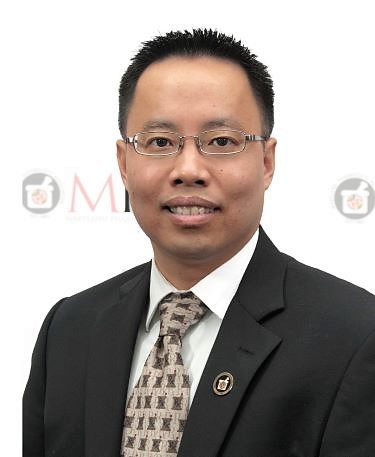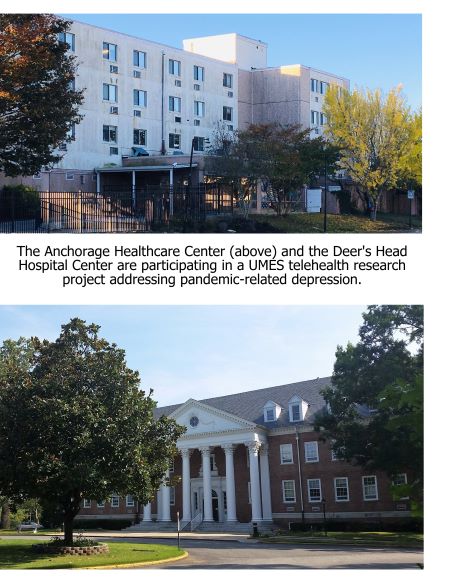
UMES researchers eye music therapy as an alternative to medication
Wednesday, November 4, 2020
The University of Maryland Eastern Shore is creating a research training program to treat and hopefully prevent depression in rural nursing home residents without relying exclusively on medication.
The university has secured a pair of grants in recent months worth a combined $258,000 from the Maryland Department of Health and the Rural Maryland Council to focus on ways to address social isolation, anxiety and depression exacerbated by the pandemic.
UMES researchers will be incorporating the latest telehealth techniques to deliver patient education and music therapy to address mental health problems that lonely nursing home residents might experience.
A portion of the grant will fund the salary of a position the university is calling “health equity and rural health fellow.”
“The grants will enable the university to start a post-doctoral research training program,” said Dr. Hoai-An Truong, a UMES School of Pharmacy professor and its public health director. “It’s exciting.”
Truong heads a team of UMES colleagues with expertise spanning public health, geriatric pharmacy, minority and rural health; Dr. James Bresette, Dr. Careen-Joan Franklin, Dr. Nkem Nonyel, Dr. Miriam Purnell, Nancy Rodriguez-Weller, Gregory Shaeffer and Dr. Seohwee Chloe Ahn.
Truong said the pilot project calls for rural nursing home residents to be selected “based on previous or new diagnosis of depression prior to or during COVID-19 pandemic as well as those at-risk for depression due to social isolation.”
Faculty researchers will use telehealth-delivered patient education – some with and some without music therapy – twice a week over eight weeks. A music therapist from Cambridge will work with Truong’s team.

Together, they’ll be looking to “measure … improvement or alleviation of depression, with secondary outcomes such as improved quality of life, appropriate medications use and improve resident safety and health,” Truong said.
UMES’ faculty-researchers will start the first phase of their pilot study shortly at Salisbury’s Anchorage Healthcare Center.
“We at Anchorage Healthcare Center are excited to be working with UMES to help better understand the impact the COVID-19 pandemic has had on our residents as well as, more importantly, how we can better help them out,” Anchorage administrator Joe Rose said. “I believe this is great opportunity to provide a much needed service that will have long lasting effects and I am grateful for UMES reaching out to us.”
UMES is working to formalize a similar agreement with the Deer’s Head Hospital Center, also in Salisbury.
“Deer’s Head Hospital Center is excited to participate in this study,” chief executive officer Mary Beth Waide said. “We are patient-resident focused and see this as an opportunity to improve the quality of care and the lives of those we serve.”
The post-doctoral research training program will be supported by the Maryland Rural Health Association, the American Association of Colleges of Pharmacy and the state health department’s Office of Minority Health and Health Disparities as its partners.
Truong said the university will focus on gauging how the pandemic is affecting the mental health of under-served and vulnerable populations, especially health disparities experienced by (nursing home) residents of color.
The Rural Maryland Council’s grant review board received nearly 180 proposals requesting a combined $14 million – roughly $6 million more than was available.
“The selection process was extremely competitive,” the council wrote in its note to the UMES,” and “the Board is pleased to be able to support your great efforts in rural Maryland.”

